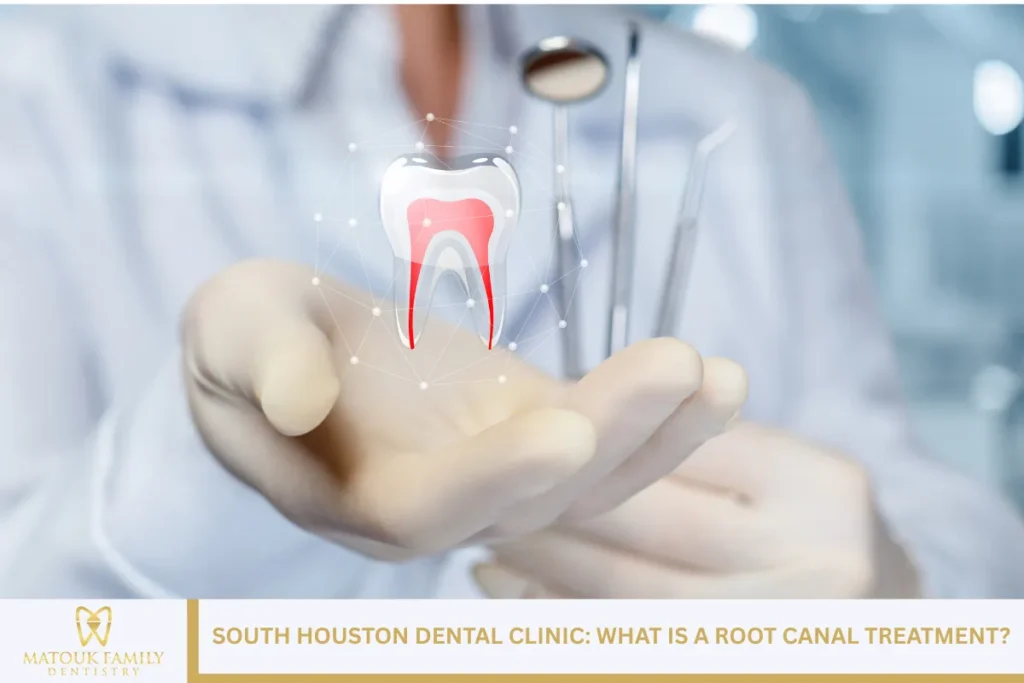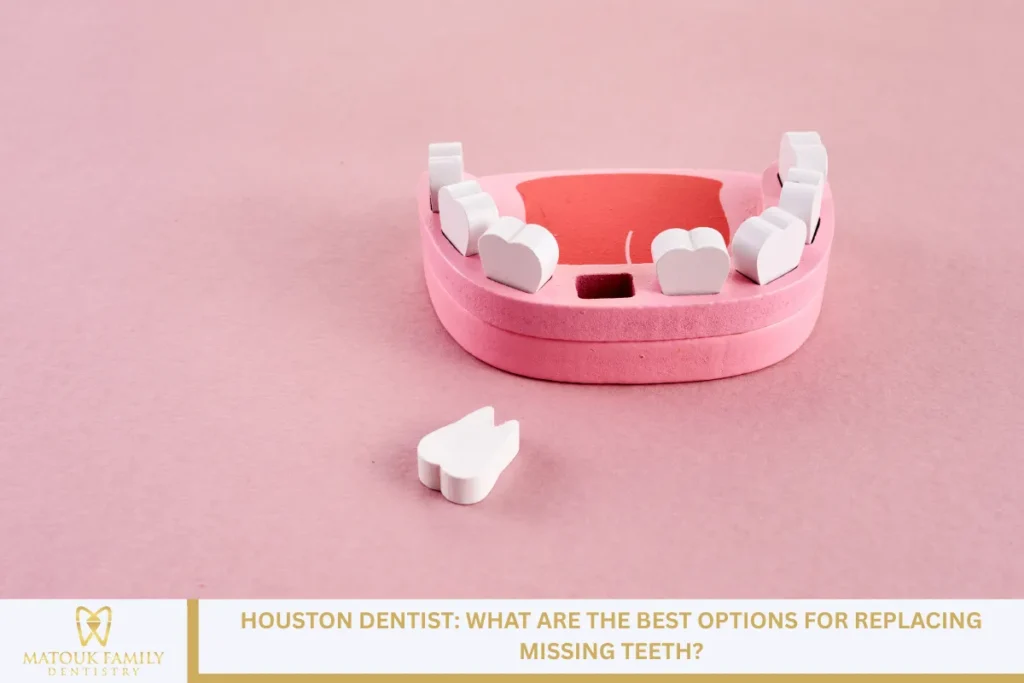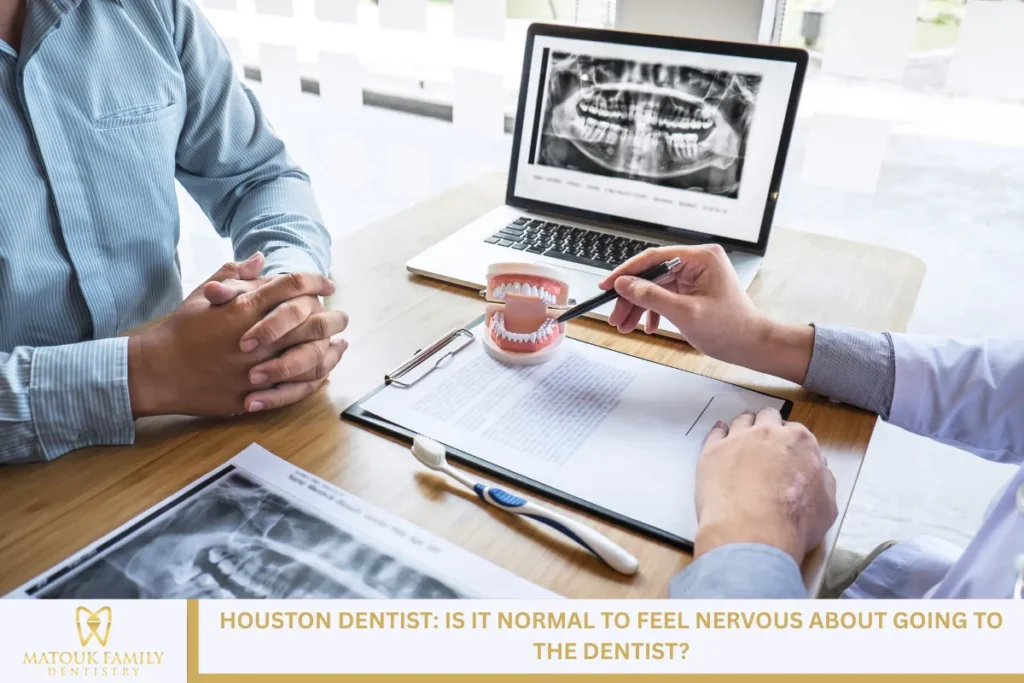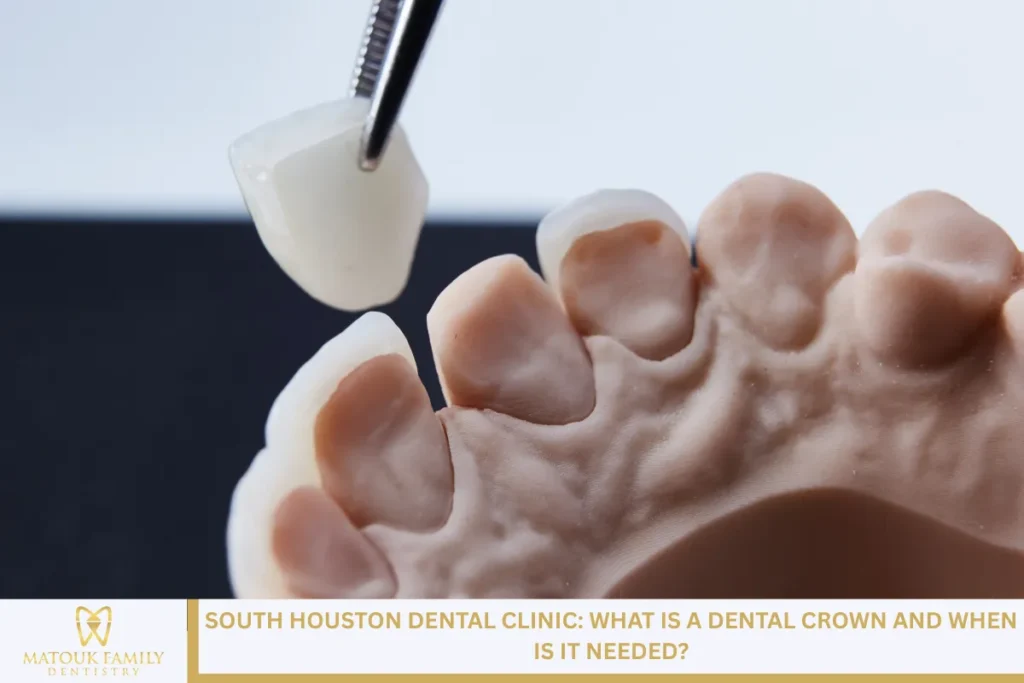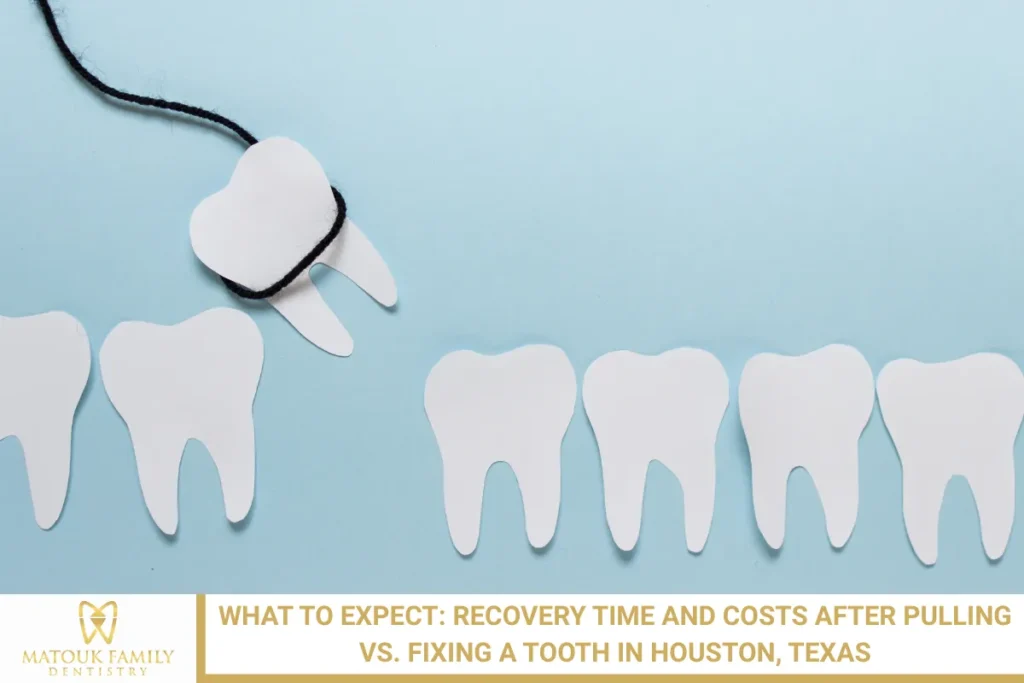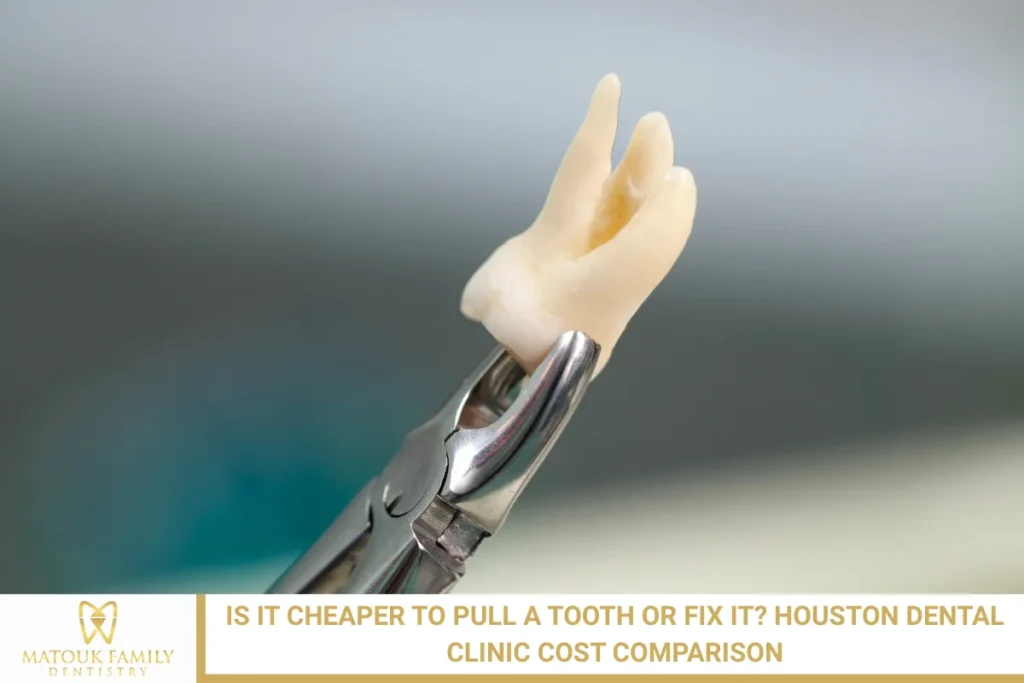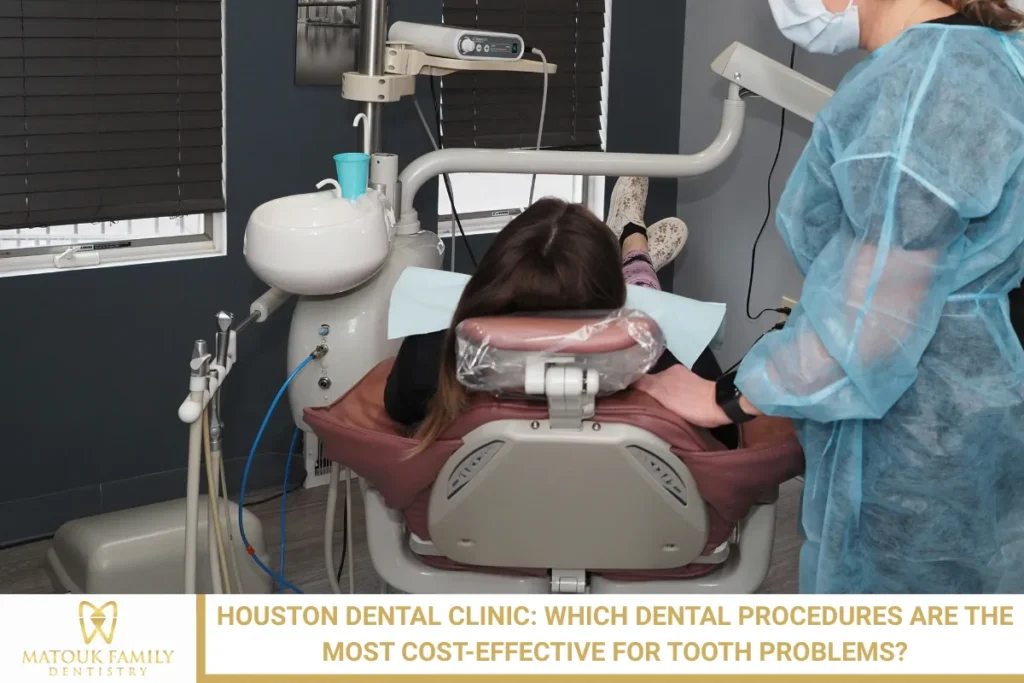Experiencing persistent tooth pain, sensitivity, or swelling can often signal the need for specialized care. At a dental clinic, root canal treatment is one of the most common procedures performed to address these issues. Understanding how a root canal works and why it’s necessary is essential for patients who want to make informed decisions about their oral health.
Root canals may sound intimidating, but they’re actually a safe and routine dental solution used to preserve natural teeth that would otherwise require extraction. This article will give you a detailed overview of what root canal treatment involves, why it’s performed, how it helps protect your smile, and how professional providers in the South Houston area handle it.
What Is a Root Canal Treatment?
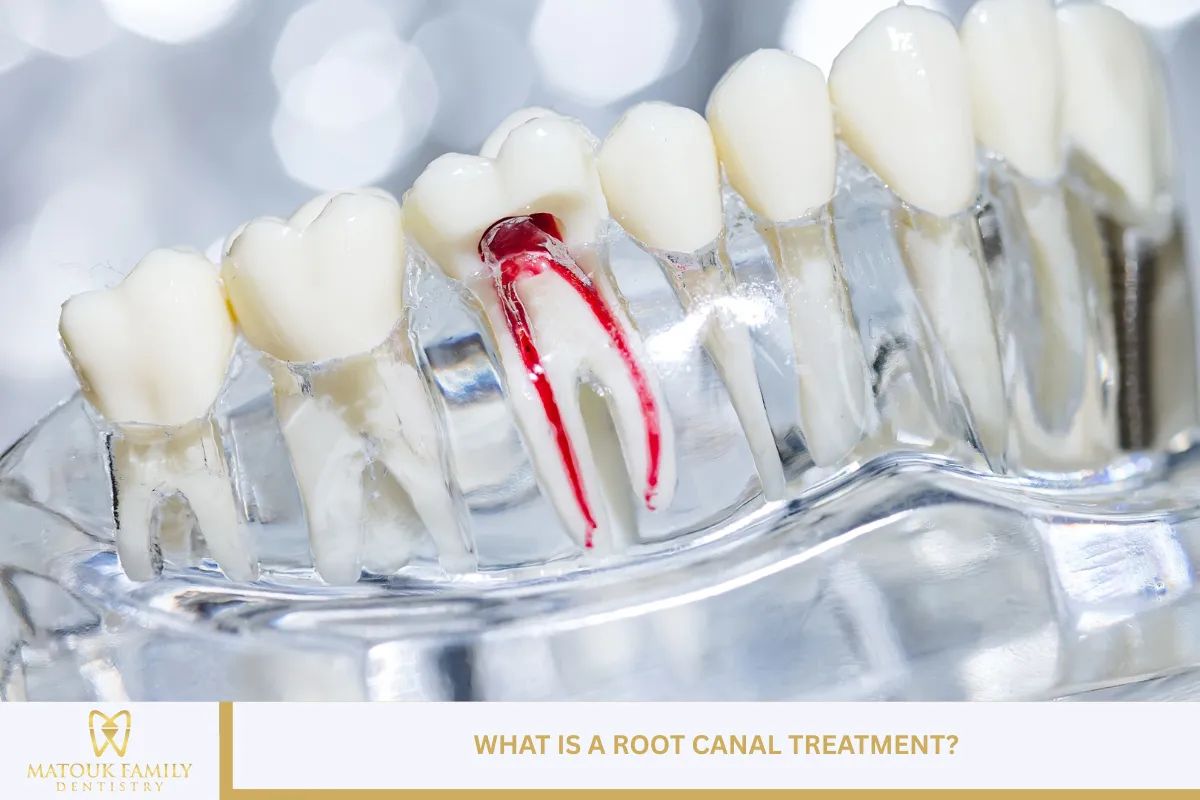
A root canal treatment is a dental procedure used to treat infection or inflammation inside a tooth. The inner part of the tooth is called the pulp, which contains nerves, blood vessels, and connective tissues that help the tooth develop during its growth. However, once the tooth is fully mature, it can survive without the pulp because it continues to be nourished by surrounding tissues.
When the pulp becomes infected due to decay, repeated dental procedures, faulty crowns, or a crack in the tooth, it can cause significant pain and even form an abscess. A root canal is performed to remove the infected or damaged pulp and prevent the infection from spreading further. After the pulp is removed, the inside of the tooth is cleaned, shaped, filled, and sealed.
The primary goal of a root canal is to eliminate bacteria from the infected root canal system, save the natural tooth, and restore its function. Without treatment, the infection can spread to the surrounding bone and tissues, potentially leading to more severe health problems.
Why Root Canal Treatment Is Necessary

The need for a root canal arises when the pulp inside the tooth becomes irreversibly damaged. This typically occurs due to deep decay or trauma that affects the inner structures of the tooth. In some cases, damage may not be immediately visible, but over time, the tooth becomes increasingly sensitive, swollen, or painful.
If left untreated, the infection can worsen and potentially lead to tooth loss. Additionally, surrounding tissues, such as the jawbone, can be affected, and a painful abscess may form. This accumulation of pus can spread to other areas of the mouth or even into the bloodstream, causing serious health complications.
Root canal treatment provides a means to halt the infection, alleviate pain, and preserve the natural tooth’s integrity. It’s an important part of modern dental care because it provides patients with an effective alternative to extraction and tooth replacement.
Symptoms That May Require a Root Canal
Recognizing the symptoms early is key to preventing further damage and saving the affected tooth. Several signs may indicate the need for a root canal procedure:
- Constant or spontaneous pain in a tooth
- Sharp pain when biting or chewing
- Lingering sensitivity to hot or cold, even after the stimulus is removed
- Swelling of the gums near the affected tooth
- A small bump or pimple on the gums
- Tooth discoloration or darkening
- Tenderness in nearby lymph nodes
These symptoms don’t always indicate the need for a root canal. Still, they should prompt an evaluation at a professional dental clinic. An early diagnosis can help preserve the tooth and prevent the condition from worsening.
Detailed Steps in a Root Canal Procedure
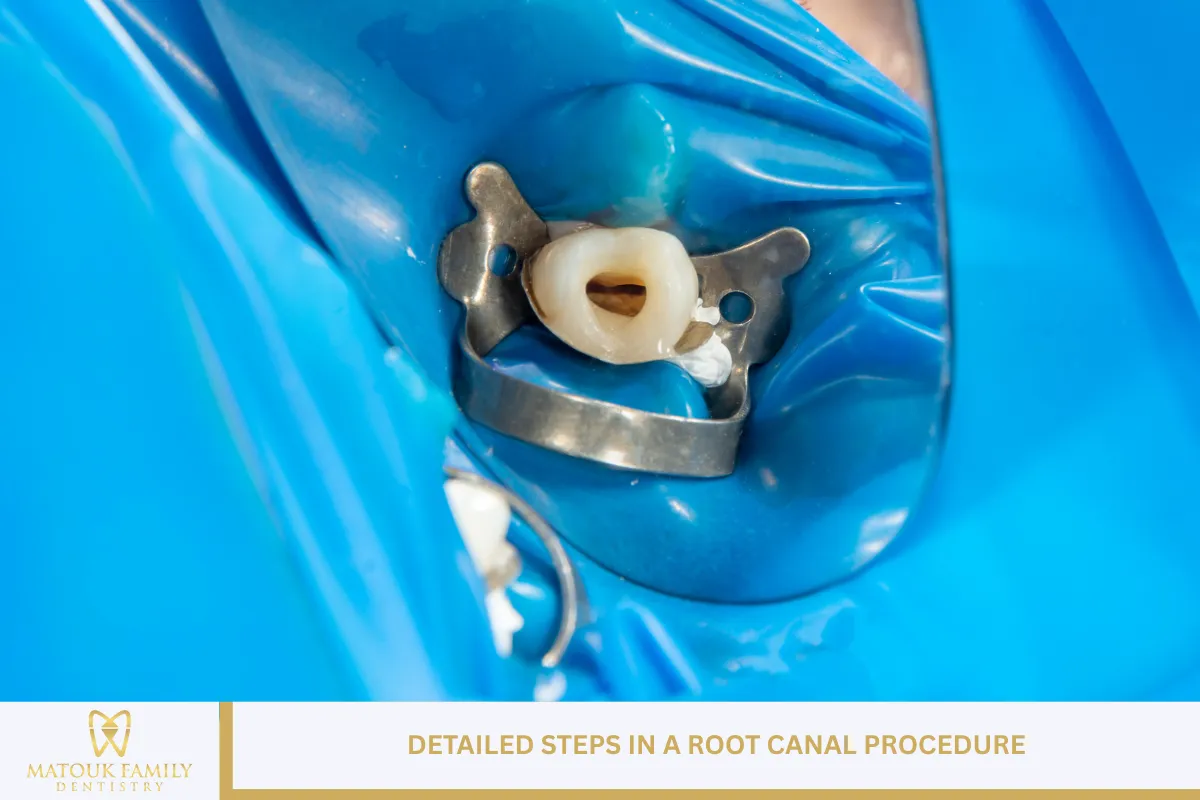
Understanding each step of the procedure helps remove the fear and uncertainty that often surrounds root canal treatments. The entire process is typically completed over one or two visits, depending on the complexity of the case and the condition of the tooth.
Examination and Diagnosis
The dentist begins by examining the tooth using X-rays to assess the extent of the damage or infection. The tooth is tested for sensitivity, and the condition of the surrounding tissues is evaluated. Once it’s determined that a root canal is necessary, the dentist will outline a treatment plan and discuss it with the patient.
Local Anesthesia and Isolation
To ensure a comfortable experience, local anesthesia is applied to numb the area around the affected tooth. A rubber dam is then placed around the tooth to keep it dry and free from saliva during the procedure.
Access and Pulp Removal
An opening is made through the top of the tooth to access the pulp chamber and root canals. Using specialized tools, the dentist carefully removes the infected or inflamed pulp tissue from inside the tooth.
Cleaning and Shaping the Canals
After removing the pulp, the canals are cleaned, enlarged, and shaped to prepare them for filling. This process ensures that all bacteria and debris are eliminated, which helps prevent re-infection.
Filling and Sealing the Canals
The cleaned and shaped canals are filled with a rubber-like material called gutta-percha. This biocompatible substance seals the canals, preventing bacteria from entering. The opening in the tooth is then sealed with a temporary or permanent filling.
Restoration of the Tooth
In most cases, a tooth that has undergone a root canal will need further protection with a dental crown. The crown strengthens the tooth and restores its full function. This is usually done during a follow-up visit after the initial healing period.
Benefits of Choosing Root Canal Treatment

Root canal treatment offers several advantages compared to tooth extraction and other procedures. Here are some of the most important benefits:
- Preservation of Natural Teeth: Keeping your natural teeth is always preferable to replacing them with a prosthetic. A root canal allows you to retain your original tooth structure.
- Prevention of Further Infection: By removing infected tissue, the treatment stops the spread of bacteria and protects surrounding teeth and bone.
- Pain Relief: Contrary to popular belief, root canals are not painful procedures. They actually eliminate the cause of the pain, providing long-term relief.
- Improved Oral Function: With proper restoration, a root canal-treated tooth can function just like any other tooth for many years to come.
- Cost-Effective: Although the initial cost may seem high, saving the tooth with a root canal is generally less expensive than extracting it and then replacing it with a bridge or implant.
What to Expect After the Procedure
Recovery after a root canal is generally smooth and straightforward. Some mild soreness or sensitivity is common for a few days, especially when chewing or applying pressure to the tooth. This discomfort usually subsides on its own or can be managed with over-the-counter pain medication.
It’s important to follow your dentist’s post-procedure instructions, including:
- Avoid chewing on the treated tooth until it’s fully restored.
- Maintain good oral hygiene practices.
- Schedule any follow-up visits for crown placement or to monitor progress.
- Contact your dental clinic if you experience severe pain, swelling, or signs of infection.
With proper care, a tooth that has had a root canal can last a lifetime.
How Root Canals Differ from Other Dental Treatments
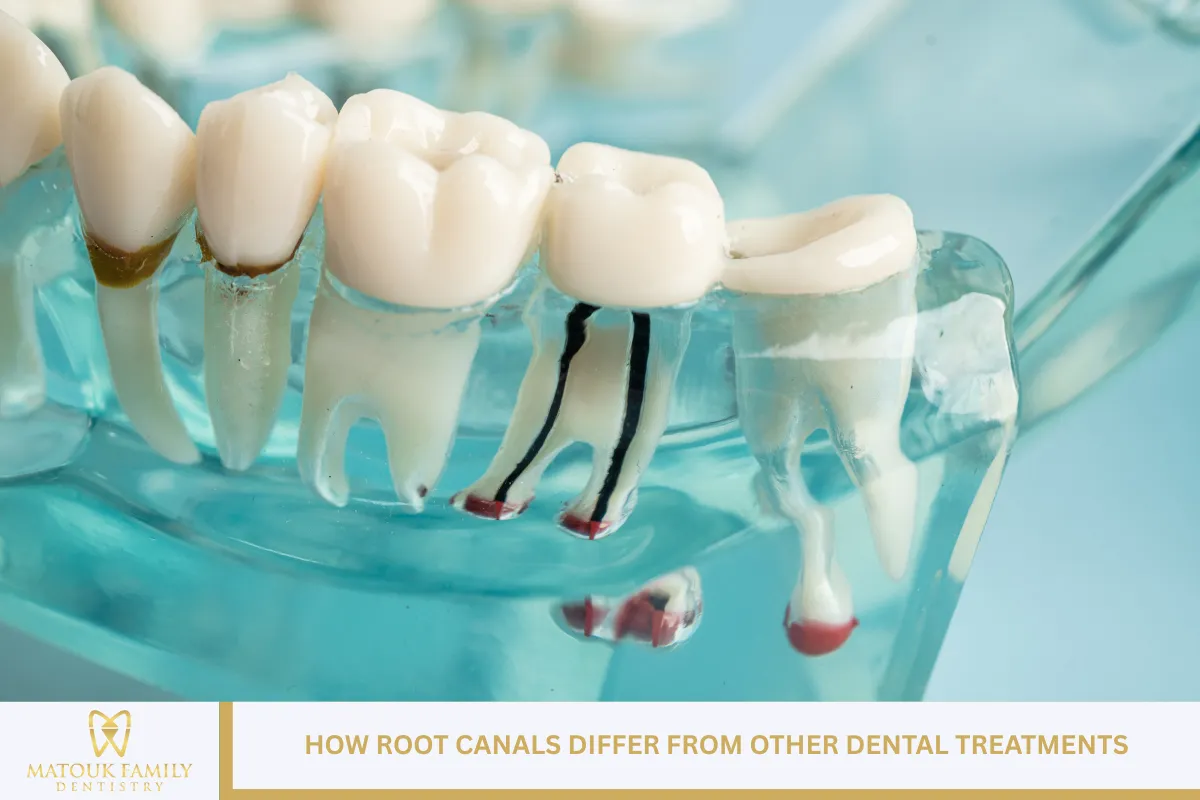
A root canal is different from other dental procedures in that it targets the inner, living portion of the tooth. While fillings and crowns address the outer layers, a root canal focuses on eliminating infection from the pulp and roots. Compared to extraction, it is a conservative approach that aims to preserve what remains of the tooth, rather than replacing it.
This makes root canal treatment a vital part of comprehensive dental care. At a fully equipped dental clinic, this procedure is performed using modern technology and materials that enhance outcomes and patient comfort.
Common Myths About Root Canal Treatments
Despite their effectiveness, root canals are often surrounded by misinformation. Let’s clarify some of the common myths:
- Myth: Root canals are painful.
- Reality: Modern dentistry makes the procedure no more uncomfortable than getting a filling.
- Myth: Removing the tooth is better.
- Reality: Saving the natural tooth is typically healthier, less invasive, and more economical in the long run.
- Myth: The benefits are temporary.
- Reality: With proper care, a root canal-treated tooth can last a lifetime.
Understanding the facts helps patients feel more confident and less anxious about treatment.
The Importance of Early Treatment
Early diagnosis and treatment are crucial in preventing complications. If symptoms are ignored, the infection can worsen and spread to other parts of the body. Timely care at a skilled dental clinic can make all the difference in preserving your oral health and avoiding more serious procedures later.
Delaying treatment can also lead to more pain, swelling, and the need for more extensive dental work. Seeking help at the first sign of trouble allows for simpler, quicker treatment and better long-term results.
What Makes a Dental Clinic in South Houston the Right Choice?

Choosing the right provider for your root canal treatment is a crucial step in ensuring its success. In South Houston, dental clinics that offer advanced tools, experienced professionals, and a comfortable environment provide the best outcomes for patients.
Look for clinics that offer:
- Thorough consultations and diagnostics
- Patient-centered care and clear communication
- Access to the latest dental technology
- Flexible scheduling and emergency care options
- A commitment to cleanliness and safety protocols
A reliable dental clinic will guide you through every step of the process with care and professionalism, helping you feel at ease and confident in your treatment.
Understanding Root Canal Success Rates
Root canal treatments have a very high success rate. In fact, studies show that more than 90% of root canal procedures result in a tooth that functions normally for years—often a lifetime. Proper restoration with a dental crown and regular dental visits are key to maintaining the health of the treated tooth.
With the right care, a tooth that has undergone a root canal can remain strong and fully functional, enabling you to eat, speak, and smile without discomfort or concern.
Final Thoughts on Root Canal Treatment
Root canal treatment is a highly effective way to save a damaged or infected tooth and avoid extraction. It’s a routine, safe, and widely performed dental procedure that brings relief from pain and restores full function to the affected tooth.
If you’ve been experiencing tooth pain or other symptoms, don’t ignore them. The sooner you visit a dental clinic for evaluation, the more likely it is that your natural tooth can be preserved with minimal discomfort and long-term benefits.
South Houston Dental Clinic – Matouk Family Dentistry

Looking for a dental clinic in South Houston that provides dependable root canal treatment and comprehensive general dental care? Matouk Family Dentistry offers practical, patient-focused services designed to maintain your dental health and make your visits as stress-free as possible. Whether you need routine checkups or more advanced procedures, we’re here to help with clear communication, modern equipment, and a commitment to your comfort.
Led by Dr. Christina Matouk and located just off the Gulf Freeway in Houston, we offer a full range of dental services, including general dentistry, family dentistry, cleanings, fillings, crowns, dental implant restoration, dentures, root canals, and oral cancer screenings. For more information or to schedule an appointment, call us today at (281) 484-3675!
Frequently Asked Questions About Root Canal Treatment
1. What exactly happens during a root canal procedure?
A root canal procedure, also known as endodontic therapy, treats infection or inflammation within the dental pulp—the soft tissue inside the pulp chamber. This procedure removes diseased pulp from the pulp cavity to prevent further complications, such as dental infection or systemic disease.
Here’s a step-by-step overview:
- The general dentist or root canal specialist uses dental X-rays to locate the infection.
- Local anesthetics are applied to numb the area.
- A dental dam is placed to isolate the tooth.
- Using specialized dental instruments, the tooth pulp is removed, and the canals are shaped.
- The space is disinfected and sealed with either a temporary or permanent filling.
- In most cases, a crown—often porcelain fused to metal—is placed later for full protection.
This endodontic procedure allows the root of a tooth to remain intact while eliminating pain and infection.
2. How do I know if I need a root canal?
Certain symptoms suggest that the tooth pulp inside your tooth may be infected or inflamed, requiring endodontic treatment. Ignoring these signs could lead to damage in periapical tissues and gum swelling.
Common symptoms include:
- Persistent or severe toothache
- Sensitivity to temperature changes, especially hot and cold
- Pain when chewing or touching the tooth
- Swollen or tender gum tissue
- Darkening or discoloration of the tooth
- A recurring pimple-like bump near the affected tooth
While these symptoms don’t always mean a root canal is necessary, they often indicate problems in the pulp cavity or at the root of a tooth.
Only a dental professional can confirm the diagnosis using dental X-rays, along with a physical examination. In South Houston and elsewhere, visiting a dental clinic early improves your chances of saving the tooth and avoiding more invasive procedures, such as extraction, a tooth implant, or a removable partial denture.
3. Is root canal therapy painful?
Root canal therapy is often misunderstood, which is why misconceptions about it persist widely. Thanks to modern local anesthetics, the endodontic procedure today is no more uncomfortable than getting a regular dental filling.
Here’s what makes it comfortable:
- Dental dam placement isolates the tooth, providing a cleaner and safer procedure.
- The area is numbed so that you don’t feel pain during the treatment.
- The use of advanced dental instruments and dental materials ensures precision and efficiency.
Any discomfort you feel after the procedure is usually mild and can be managed with over-the-counter pain relievers. It typically fades within a few days.
In fact, the purpose of the root canal procedure is to remove the source of your pain—the diseased pulp—so you can return to eating, speaking, and smiling without issue. Following the procedure, it’s advised to eat soft foods until healing progresses.
4. Can root canal treatment cause health problems later?
This concern stems from the outdated focal infection theory, which falsely claimed that treating a tooth via endodontic therapy could lead to systemic disease. This theory has been debunked by decades of research and is not supported by modern science.
Legitimate studies and dental associations, such as the American Association of Endodontists (AAE), confirm that root canal treatment is a safe and effective procedure. It removes harmful bacteria from the pulp chamber and pulp cavity, preventing the spread of infection rather than causing it.
Why the confusion persists:
- Old beliefs were based on poor techniques and materials from the early 1900s.
- People often mistake post-treatment discomfort for a larger health issue.
- Myths online persist, despite the availability of scientific evidence.
Today’s endodontic procedures use sterile tools, high-quality dental materials, and digital dental X-rays to ensure safety. There’s no credible link between root canal therapy and chronic illness when performed correctly by a qualified general dentist or endodontist.
5. How can I care for my tooth after a root canal?
Post-treatment care is crucial to the long-term success of a root canal procedure. After the dental pulp is removed and the canals are cleaned, the area needs time to heal before it’s permanently restored.
Here are some tips to help:
- Avoid hard or crunchy foods for the first few days; stick to soft foods to prevent irritation.
- Maintain oral hygiene by gently brushing and flossing, including the area where treatment was applied.
- Take any prescribed medications, including antibiotics if recommended, to prevent dental infection.
- Return to your dental clinic for follow-up and final restoration, which is often a porcelain-fused-to-metal crown.
- Don’t delay placing the permanent crown. The temporary filling won’t last forever and doesn’t fully protect the tooth.
Avoiding care after root canal therapy can lead to reinfection, breakdown of the dental materials, or even damage to the gum tissue and surrounding periapical tissues. With proper maintenance, a treated tooth can last a lifetime.
Read more: South Houston Dental Clinic: What Is a Dental Crown, and When Is It Needed?

